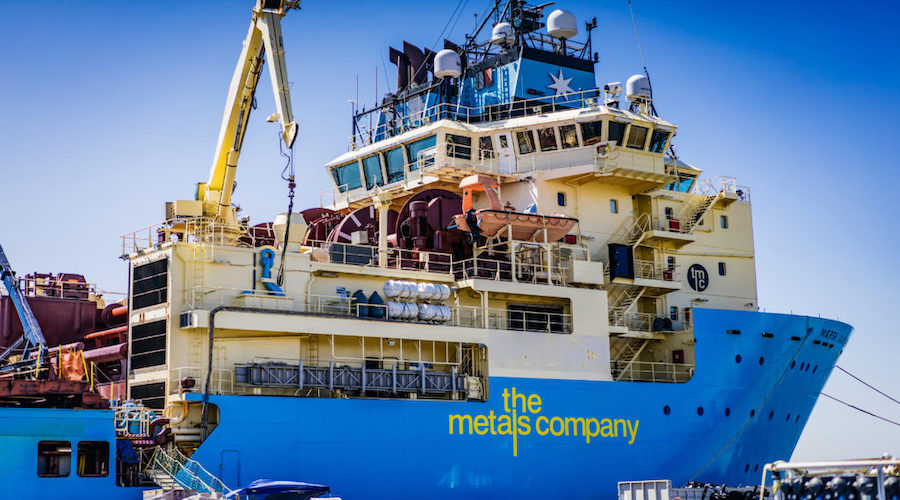Canadian deep-sea miner TMC to seek licence in 2024


Canada's The Metals Company (NASDAQ: TMC) is ready to apply next year for a licence to start mining the seabed, with production expected to start as early as the fourth quarter of 2025.
TMC is a deep-sea mining pioneer, which has been actively carrying out exploratory mining expeditions to mineral-rich Clarion-Clipperton Zone (CCZ). In this vast area between Hawaii and Mexico, polymetallic nodules the size of potatoes were discovered more than 120 years ago.
The company’s plan is to scoop up those nodules in a process they say will be less damaging than land-based mining.
TMC said earlier this week that its subsidiary, Nauru Ocean Resources Inc. (NORI), intended to submit an application to the International Seabed Authority (ISA) after the global regulator meets in July next year.
"Assuming a one-year review process, NORI expects to be in production in the fourth quarter of 2025," TMC said in the market update.
In its recent assembly, held last month, the ISA was expected to come out with rules governing the activity, including the permitting process.
After tense discussions and the pressure of several governments to extend a moratorium, the United Nations-affiliated body ruled out the immediate issuing of permits. It did, however, maintain a legal loophole that would allow mining to begin next year.
The Jamaica-based watchdog received in 2021 a formal request from the tiny Pacific Island of Nauru for a commercial deep-sea mining licence. The move triggered a clause that put the ISA on a two-year countdown to consider the application, despite the lack of regulations in place.
Supporters of mining the seabed note the nascent industry could boost supplies of metals needed for the global energy transition, including nickel, cobalt and copper.
In the fall of 2022, TMC said it had successfully deployed its treaded vehicle in the Pacific’s CCZ, sucking up more than 3,000 tonnes of polymetallic nodules and transporting them up a 4.3-km system of pipes to its mother ship.
Earlier this year, three advocacy groups claimed that TMC appeared to be caught violating its protocols after two videos were leaked purporting to show waste sediment getting dumped into the Pacific Ocean during the expedition.
An investigation by ISA on the matter, published in May and whose findings have not been previously reported, concluded the spill did not breach the regulator’s rules or cause serious environmental harm.
The authority, however, concluded TMC’s handling of the incident showed “insufficient risk awareness” and failure to follow its own risk management procedures.
Duncan Currie, a lawyer at the non-profit Deep Sea Conservation Coalition, said the ruling was not harsh enough. “If [the ISA] does not consider a spill such as this to be a problem, this raises real concerns about their ability to regulate a full-blow mining operation,” he told Financial Times this week.
Greenpeace campaigner Louisa Casson described TMC's announcement as a "kick in the teeth" for the 21 countries that are calling for a halt. Besides these nations there are others demanding a "precautionary pause" until protections are in place, while France is pushing for a complete ban.
He added that "instead of acting on scientific findings, which conclusively prove this industry will put the oceans in danger, [TMC is] announcing fanciful plans to ramp up production in a desperate attempt to reassure their worried investors and save their plummeting share price."
A paper published last month claims that extracting minerals from the ocean floor would negatively impact the tuna industry as the fish is expected to migrate habitat towards areas of the Pacific Ocean currently slated for deep-sea mining activity.
The peer-reviewed article followed a similar study unveiled in May, which warns that mining the seabed may affect thousands of species recently discovered in the CCZ region, where the Metals Company already has two exploration contracts.
It also came on the heels of a report by non-profit financial think tank Planet Tracker arguing that the price tag of fixing the damage caused by mining the ocean floor would double the cost of extracting the minerals companies have set sights on.
THIS STORY FIRST APPEARED ON MINING.COM.
Comments